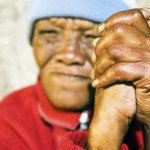
Psychiatrists, GPs and other professionals working in the substance misuse field will benefit from reading these new guidelines from the British Association for Psychopharmacology. The guidelines cover the pharmacological management of alcohol, nicotine, opioids, benzodiazepines, stimulants and associated comorbidity with mental health problems and substance use or abuse in pregnancy. They look specifically at comorbidity, [read the full story…]








